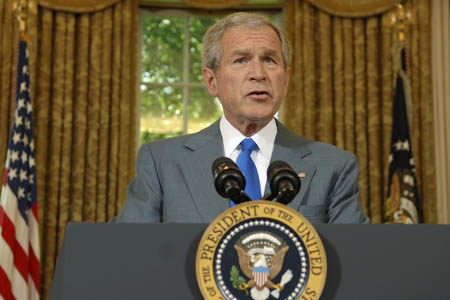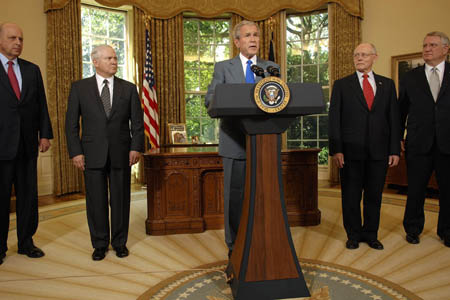
US President George W. Bush speaks at the Oval Office after signing an Iraq war supplemental bill at the White House in Washington, June 30, 2008.(Xinhua/Reuters Photo)
US President George W. Bush signed a war funding bill worth 162 billion US dollars on Monday, the last one in his tenure.
The bill will cover war expenses in Iraq and Afghanistan well into the middle of next year, after Bush leaves office in January 2009.

US President George W. Bush (C) stands with Deputy Secretary of State John Negroponte (L), Defense Secretary Robert Gates (2nd L), Veterans Affairs Secretary James Peake (2nd R) and Director of White House Office of National Drug Control Policy John Walters (R) as he makes a statement in the Oval Office after signing an Iraq war supplemental bill at the White House in Washington, June 30, 2008.(Xinhua/Reuters Photo)
The bill's passage in the US Senate and House is a victory for Bush, as the Congress had to remove a language mandating a timeline to withdraw troops from Iraq from the bill's original version after the president's veto threat.
Nevertheless, the bill did attach some strings to the war spending in two ways. First, it forbids the US military to construct permanent bases in Iraq, and second, for every US dollar the United States spends in Iraq's reconstruction, the government of Iraq has to match it with one dollar from its own treasury.
The new funding will push the total war spending on Iraq to 650 billion dollars, and the total spending of the "war against terror" will be 850 billion dollars if the spending on Afghanistan is included.
(Xinhua News Agency July 1, 2008)